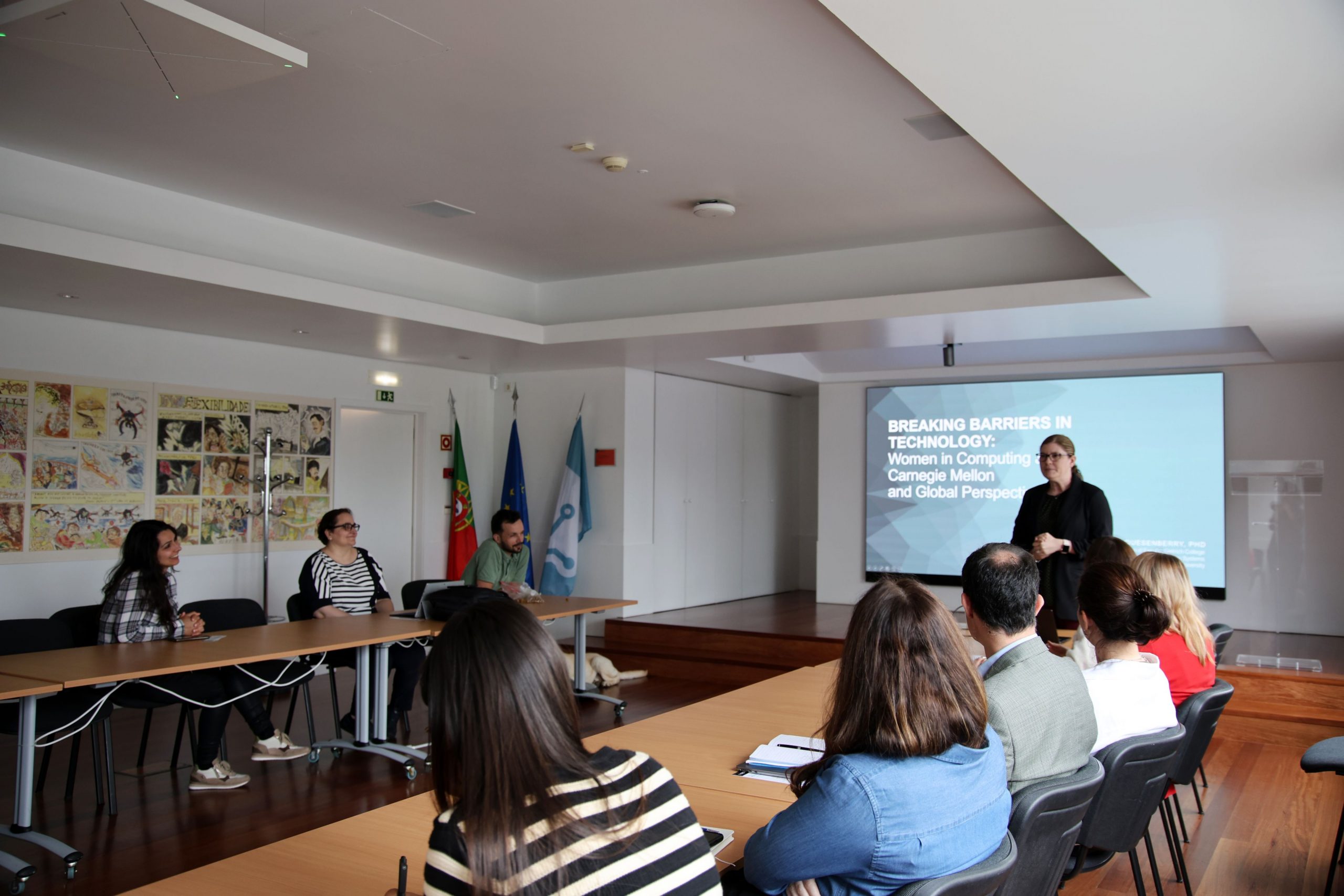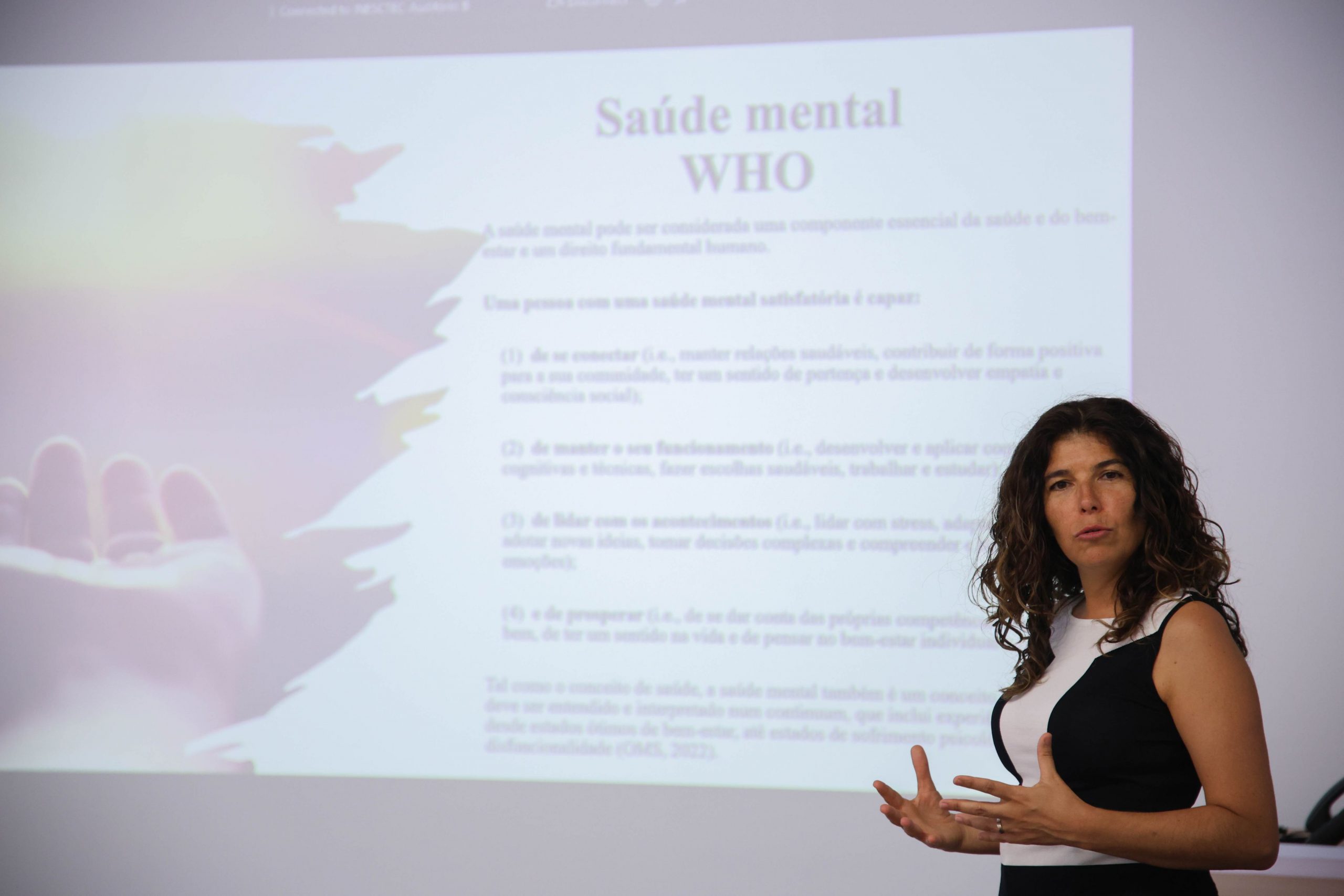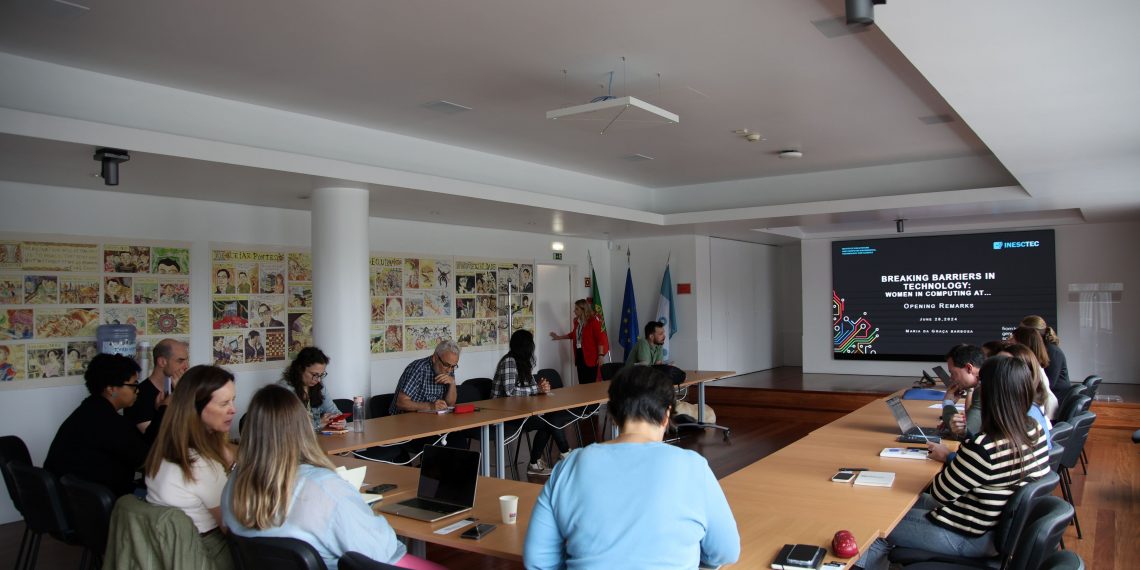Gender equality and well-being have been vital – not only in HR in general, but in the world of science and technology. In a domain with a predominantly male track record, there have been several discussions towards adopting effective strategies to increase female representation in STEAM (Science, Technology, Engineering, Arts and Mathematics) areas and emphasise the importance of mental health and well-being in the workplace. In this sense, INESC TEC – through the Diversity & Inclusion Commission – launched a series of summer initiatives focusing on said questions.
An in-depth analysis of the representation of women in STEAM areas
After the success of the “Women in STEM” event (2022), and to reinforce the Gender Equality Plan for 2022-2026, INESC TEC organised a new debate on the representation of women in STEAM areas. Jeria Quesenberry, Professor of Information Systems at Carnegie Mellon University (CMU), was the main speaker at the event, organised in partnership with the Carnegie Mellon Portugal programme (CMU Portugal), and supported by the Foundation for Science and Technology (FCT),
Drawing on her co-authored book, “Kicking Butt in Computer Science: Women in Computing at Carnegie Mellon University”, Jeria Quesenberry detailed the strategies that have significantly increased female representation in computing studies at CMU.

“The event highlighted CMU’s success factors, including institutional support, a dedicated communication strategy and a renovated work environment, together with initiatives that can guide our institution”, said Clara Gouveia, member of the Board of Directors at INESC TEC – also stating that “the discussion emphasised the need to coordinate our efforts with higher education institutions”.
The event also focused on the Institute’s progress, with Ana Filipa Sequeira, researcher and coordinator of the D&I Commission, presenting data on gender (dis)parity in various dimensions of the organisation.
“We have seen encouraging trends in female representation between 2018 and 2023”, said Ana Filipa Sequeira, “but there is still work to be done, especially when it comes to leadership positions”, she concluded.
Promoting healthy work environments: perspectives on mental health and well-being
To discuss better healthcare and lifestyle conditions in work environments, INESC TEC’s D&I Commission invited Tânia Gaspar, Professor at Universidade Lusófona de Lisboa and leader of the Healthy workplace ecosystems (EATS) project.
In this talk, Tânia Gaspar stressed the importance of mental health and employees’ happiness as means to analyse success in today’s workplaces: “balancing personal and professional life is no longer a luxury, but a requirement for organisational success,” she said.

The presentation sparked a lively discussion among participants, with some urging for improved training in mental health and a greater involvement of entities’ leaders in promoting well-being.
Ana Isabel Lopes, part of INESC TEC’s HR and a member of the D&I Commission, was optimistic about the institution’s progress: “people are clearly aware of the importance of mental health. We are planning to implement further measures in the upcoming months, to address these concerns”.
With more initiatives planned, INESC TEC is positioning itself to promote inclusive and healthy work environments.
About the Diversity & Inclusion Commission at INESC TEC
The D&I Commission was created by the INESC TEC Board of Directors in September 2021, after the presentation of the Report of the Working Group on Gender Equality + Diversity and Inclusion, which took place on July 15, 2021.
The main mission of the D&I Commission is to propose and implement a D&I programme, with gender equality as a priority.
This body is currently coordinated by Ana Filipa Sequeira and composed of Ana Isabel Lopes, Aurora Libânia Teixeira, Tiago André Silva and Tiago Filipe Gonçalves.
The researchers mentioned in this news piece are associated with INESC TEC.


 News, current topics, curiosities and so much more about INESC TEC and its community!
News, current topics, curiosities and so much more about INESC TEC and its community!